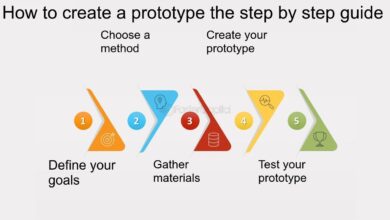Money BetterThisWorld: Redefining Wealth in the Modern Era

Introduction to Money BetterThisWorld
Money BetterThisWorld Money has always been at the center of human civilization. It is not just a medium of exchange—it is a concept that influences culture, ambition, and even morality. In recent years, the phrase “Money BetterThisWorld” has started circulating among thinkers, financial experts, and visionaries. At its core, this idea challenges us to rethink how money is used and whether it can truly create a better world.
Instead of seeing money as merely a tool for personal gain, the concept of Money BetterThisWorld pushes us to ask: Can wealth be used more responsibly? Can money play a role in building communities rather than dividing them? These questions reflect a shift in how society views prosperity.
This new way of thinking is not just philosophical—it’s practical. In an age of global inequality, climate change, and digital transformation, money is no longer neutral. How we earn, spend, and invest it determines the kind of world we leave for the next generation.
Understanding the Concept of Money BetterThisWorld

The phrase “Money BetterThisWorld” isn’t just a catchy slogan—it’s a mindset. At its simplest, it asks people to think beyond themselves when it comes to wealth. Rather than hoarding riches, it encourages responsible usage that contributes to societal progress.
For example, many entrepreneurs are now embedding social responsibility into their businesses. Instead of chasing profits at any cost, they’re investing in eco-friendly operations, fair wages, and community projects. This is a perfect example of money being used to better the world, not just the individual.
But the idea goes deeper than corporate responsibility. Even at a personal level, we can practice this philosophy by making smarter spending choices. Supporting local businesses, donating to meaningful causes, or investing in ethical funds are small yet powerful steps toward aligning money with values.
The Role of Money in Society Today
To understand Money BetterThisWorld, we first need to look at how money operates in society today. For most people, money symbolizes security and freedom. It allows individuals to buy what they need, pursue their dreams, and protect their families. Yet, money can also create inequality when concentrated in the hands of a few.
We live in a time where billionaires coexist with extreme poverty. This imbalance raises an uncomfortable truth: money has the power to divide just as much as it has the power to unite. The current financial systems tend to favor those already wealthy, leaving many struggling to climb out of the economic gap.
That’s why movements like Money BetterThisWorld are gaining traction. They call for a new approach where financial power is distributed more responsibly. Instead of perpetuating inequality, money can be redirected to build opportunities for those who lack access. This shift doesn’t mean rejecting wealth—it means redefining its purpose.
How Money BetterThisWorld Differs from Traditional Wealth Building
Traditional wealth-building strategies often revolve around personal success—saving aggressively, investing wisely, and maximizing profits. While these methods are valuable, they tend to focus narrowly on the individual.
Money BetterThisWorld introduces a broader perspective. It’s not about rejecting personal gain but about integrating it with collective progress. Imagine an investor who earns profits but also ensures those profits fund renewable energy projects. Or a business owner who grows revenue while prioritizing workers’ well-being. These approaches represent a balance between prosperity and purpose.
This philosophy also stands apart because it encourages people to measure success differently. Instead of defining wealth solely by net worth, it considers impact. How many lives improved because of your financial choices? How much good was created in the world due to your investments? This redefinition makes money more than a personal asset—it becomes a societal tool.
Practical Ways to Apply Money BetterThisWorld in Daily Life
Philosophies are only meaningful if they can be applied. The good news is, Money BetterThisWorld isn’t just for corporations or philanthropists—it’s a lifestyle shift anyone can adopt.
One of the simplest steps is conscious spending. Choosing to buy from ethical brands, eco-friendly companies, or local businesses means your money supports values beyond profits. These everyday decisions collectively create significant change.
Another application is responsible investing. Today, ethical investment funds allow individuals to put money into projects that align with causes they care about, such as clean energy, affordable housing, or healthcare access. This not only generates returns but also builds a positive global footprint.
Finally, there’s giving back. Whether it’s donating a small percentage of your income or volunteering resources, the act of contributing creates ripple effects in society. Even small actions, when multiplied across communities, can make money a tool for bettering the world.
The Ethical Side of Money BetterThisWorld
The concept of ethics is deeply embedded in Money BetterThisWorld. When people think about money, ethics isn’t always the first thing that comes to mind. But in reality, every financial decision has moral weight.
For instance, choosing to invest in fossil fuels despite knowing their impact on climate change raises questions about responsibility. On the other hand, funding clean energy projects reflects a commitment to future generations. Ethics transforms money from being a passive tool to an active force for good.
Ethical finance is growing worldwide, with businesses adopting sustainability and individuals demanding more transparency. This aligns perfectly with the philosophy of Money BetterThisWorld, showing that money is not neutral—it reflects the values of those who hold it.
Challenges of Implementing Money BetterThisWorld
While the philosophy is powerful, implementing it is not without challenges. The biggest obstacle is mindset. For generations, wealth accumulation has been framed as personal success. Breaking away from that narrative requires effort and education.
Another challenge is systemic inequality. Not everyone has the luxury of making ethical choices. For individuals living paycheck to paycheck, survival often takes priority over sustainability. That’s why larger institutions and policymakers must also embrace this philosophy to create structures where people can make better choices without sacrificing necessities.
Finally, there’s the issue of greenwashing—companies pretending to be socially responsible without genuine commitment. This undermines the credibility of Money BetterThisWorld and makes it harder for consumers to trust businesses. Overcoming this requires accountability and transparency across industries.
The Future of Money and BetterThisWorld Thinking
Looking ahead, the Money BetterThisWorld philosophy may not just remain an idea—it could become the foundation for future economies. As technology, global awareness, and social movements evolve, more people are demanding systems that align profit with purpose.
Digital finance and blockchain could play a role here, offering transparent and decentralized ways to ensure money flows where it creates real impact. Similarly, younger generations, particularly Gen Z, are showing strong preferences for ethical consumption and investment. This generational shift signals that the demand for responsible wealth is only going to grow.
If embraced widely, Money BetterThisWorld could redefine success for future societies—not just in terms of economic prosperity but in terms of global well-being.
Conclusion
Money BetterThisWorld isn’t just about finances—it’s about values, ethics, and the future of humanity. It challenges us to stop seeing wealth as an end goal and start viewing it as a means to create a better world.
Whether through conscious spending, responsible investing, or corporate responsibility, each choice we make with money shapes the society we live in. The philosophy reminds us that money is not inherently good or bad—it is neutral until directed. And when directed wisely, it has the potential to reduce inequality, protect the planet, and uplift entire communities.
In the end, Money BetterThisWorld is more than a trend—it’s a call to action. It’s an invitation to rethink what wealth really means and to use financial power as a force for collective progress. If embraced, it could transform not only individual lives but also the trajectory of our shared global future.



